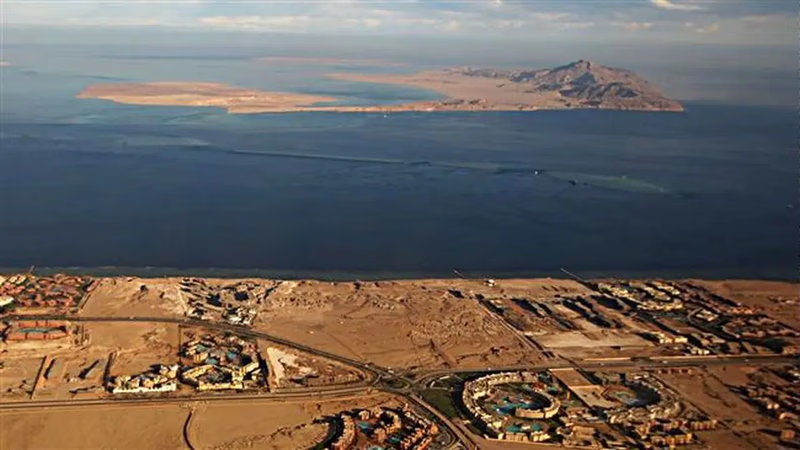
Egypt"s metal industry includes aluminum, copper, and steel production."
Egypt has a long history of gold mining, dating back to ancient times. The country is known for its significant gold deposits, particularly in the Eastern Desert region. The Sukari Gold Mine, located in the Eastern Desert, is one of the largest modern gold mines in Egypt. Egypt has iron ore deposits in several areas, including the Eastern Desert and Sinai Peninsula. The deposits are primarily of sedimentary origin and contain significant iron reserves. Iron ore mining and production have been carried out in Egypt for centuries. Egypt has bauxite deposits, which serve as a raw material for aluminum production. The country has an aluminum production plant, the Egyptian Aluminium Company (Egyptalum), located in Nag Hammadi, which produces aluminum from imported bauxite ore.
The steel sector is one of the largest components of Egypt's metal industry. Egypt has several steel production facilities, including integrated steel mills and mini-mills. These facilities produce a wide range of steel products, including rebar, wire rods, sections, and sheets. The steel industry supports construction, infrastructure development, and manufacturing sectors in Egypt. Egypt has an aluminum industry that produces primary aluminum and downstream aluminum products. The Egyptian Aluminium Company (Egyptalum) is the country's primary aluminum producer, located in Nag Hammadi. Egyptalum imports bauxite ore and produces aluminum through smelting and refining processes. The aluminum industry supports various sectors, including construction, automotive, and packaging.
Egypt has a copper industry that involves the extraction, processing, and production of copper and copper-based products. The country has copper deposits in the Sinai Peninsula and the Eastern Desert. The copper industry encompasses mining operations, smelting, refining, and the manufacturing of copper products such as wires, cables, and pipes. The copper industry supports electrical and construction sectors in Egypt. Egypt's metal industry includes the production and processing of non-ferrous metals such as zinc, lead, tin, and others. These metals are used in various industries, including automotive, electronics, and construction. Egypt has deposits of zinc and lead in the Eastern Desert.
Egypt also has a metal recycling sector that contributes to the country's metal industry. Metal recycling facilities process scrap metal, such as iron, steel, aluminum, and copper, into reusable materials. Metal recycling helps conserve resources, reduce environmental impact, and supports the circular economy. Egypt has a vibrant metal fabrication and manufacturing sector. This includes the production of metal-based products such as machinery, equipment, metal structures, and consumer goods. Metal fabrication involves cutting, shaping, welding, and assembling metal components to create finished products.
The metal industry in Egypt is supported by government initiatives, infrastructure development, and investment incentives. The country aims to enhance its metal sector's competitiveness, increase local value addition, and attract foreign investment. Collaboration with international partners and technology transfer also play a role in developing Egypt's metal industry. It's important to note that while Egypt has made progress in its metal industry, the sector still faces challenges such as energy costs, infrastructure limitations, and regulatory reforms. However, with ongoing efforts and investments, the metal industry in Egypt continues to contribute to the country's industrialization and economic diversification.
Egypt is primarily an importer of metals rather than a major exporter. While Egypt does have some metal resources, the country's domestic production of metals is not sufficient to meet its industrial demand. As a result, Egypt relies on imports to fulfill its metal requirements. The country's industrial sector, including manufacturing, construction, and infrastructure development, requires a significant amount of metals such as iron, steel, aluminum, copper, and others. To meet this demand, Egypt imports metals from various countries, including steel products, copper cathodes, aluminum ingots, and other metal commodities.
Egypt has reserves of manganese, nickel, chromium, cobalt, molybdenum, tungsten, gallium, copper, lead, zinc, and magnesium, as well as minerals. The main metals used in ancient Egypt were copper, gold, silver, and iron. The Egyptian Iron and Steel Production Complex began operations in 1973 and increased its production capacity to two million tons per year in 1993. The import of metals is driven by the country's industrial needs, infrastructure projects, and consumer demand. Egypt's geographical location and access to international trade routes make it feasible to import metals from various global suppliers.
It's important to note that Egypt does have some limited metal exports, primarily in the form of refined products or semi-processed metal materials. For example, Egypt exports a small amount of refined gold and aluminum products. Egypt's focus is more on downstream industries and value-added production rather than raw metal exports. The country has facilities for processing and manufacturing metal-based products, such as steel products, electrical cables, and aluminum extrusions, which are then exported to regional and international markets.
Egypt has copper deposits in several areas, including the Sinai Peninsula and the Eastern Desert. Copper mining and production have been documented in ancient Egyptian history. The region of Wadi Faynan in the Sinai Peninsula is known for its copper mines. Egypt possesses zinc and lead deposits, particularly in the Eastern Desert region. The deposits are associated with sedimentary rocks and contain significant mineral resources. Egypt has tantalum and niobium deposits, primarily located in the Eastern Desert. These metals are used in various high-tech applications, including electronics and aerospace industries.
-
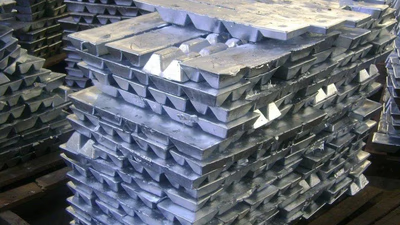
Metals are a class of chemical elements characterized by high electrical and thermal conductivity, malleability, ductility, and luster. Typically solid at room temperature, except for mercury, metals possess a crystalline structure that facilitates electron movement, contributing to their conductivity. They exhibit metallic bonds, sharing electrons within a lattice. Metals vary in reactivity; noble metals like gold and platinum resist corrosion, while others, such as iron and aluminum, are prone to oxidation. Their strength and durability make them suitable for diverse applications across construction, manufacturing, transportation, and electronics. Metals can form alloys, enhancing their properties. They are primarily silvery, high-density solids, with some exhibiting unique characteristics like low densities or high melting points. Metals are excellent conductors of electricity and heat, attributed to their free electrons.
Malleability allows them to be shaped without breaking, while ductility enables stretching into wires. The periodic table categorizes metals into groups, including alkali, alkaline earth, transition, and precious metals. Understanding these properties is crucial for industries relying on metal trade, especially in regions like the Middle East and West Asia, where commodities like aluminum, steel, and gold are pivotal.
-
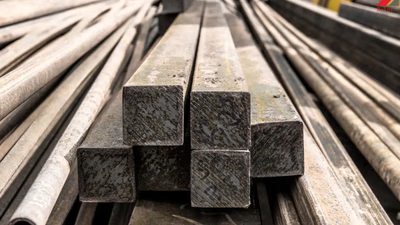
Metals are characterized by their excellent electrical and thermal conductivity due to the presence of free electrons. They exhibit malleability and ductility, allowing them to be shaped into various forms without breaking. Most metals are solid at room temperature, with a crystalline structure that contributes to their strength and stability. While some metals, like gold and platinum, are resistant to corrosion, others, such as iron and aluminum, are more reactive and prone to oxidation. Metals are typically dense, shiny, and have high melting points, making them suitable for a wide range of applications in industries such as construction, manufacturing, and electronics. Their versatility is further enhanced by their ability to alloy with other metals, leading to materials with tailored properties for specific uses. The unique combination of these characteristics makes metals indispensable in modern technology and infrastructure.
-

Egypt"s metal industry has deep historical roots, particularly in gold mining, with the Sukari Gold Mine being a notable site. The country also possesses significant iron ore deposits, primarily located in the Eastern Desert and Sinai Peninsula. Bauxite is another key resource, supporting aluminum production at the Egyptian Aluminium Company (Egyptalum). The steel sector plays a vital role in Egypt"s economy, providing essential materials for construction and manufacturing. Additionally, Egypt has a growing copper industry, with deposits in the Sinai Peninsula and Eastern Desert, contributing to electrical and construction sectors. The country also processes non-ferrous metals like zinc and lead, which are crucial for various industries. Despite its resources, Egypt primarily imports metals to meet its industrial demands, relying on international suppliers for essential commodities. The government is working to enhance the competitiveness of the metal sector through infrastructure development and investment incentives.
Challenges such as energy costs and regulatory reforms remain, but ongoing investments aim to bolster the industry. Egypt"s strategic location facilitates international trade, allowing for efficient metal imports and limited exports of refined products. The focus is on value-added production rather than raw metal exports, with a vibrant metal fabrication sector supporting local and international markets."
-
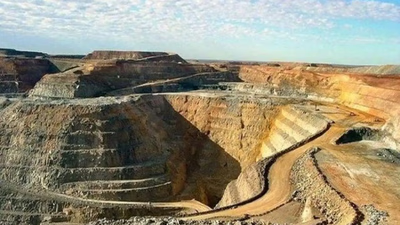
West Asia"s geological diversity has led to the formation of significant metal deposits, influenced by tectonic and volcanic activity. The region is rich in resources such as gold, copper, aluminum, and iron, found in various geological formations. Countries like Saudi Arabia, Iran, and Turkey are key players in metal production, with notable mines like Mahd adh Dhahab and Sarcheshmeh. The strategic location of West Asia has historically facilitated trade, making it a vital hub for metal mining and commerce. The region"s ancient civilizations utilized metals extensively, driving further exploration and extraction. The combination of geological richness and historical demand positions West Asia as a crucial area for commodity trade, particularly in metals like zinc, nickel, and manganese, which are essential for various industries.
-

Iran is strategically located between significant mountain ranges, contributing to its rich mineral reserves. The country boasts 62 types of minerals, with proven metal reserves estimated at 6 billion tons and potential reserves exceeding 5 billion tons. Key metals include copper, iron ore, zinc, aluminum, lead, and gold, with Iran being a top global producer in several categories. Notable copper deposits are found in Kerman, Sistan and Baluchestan, and East Azerbaijan, while high-quality iron ore is primarily sourced from the Chadormalu and Gol Gohar mines. Zinc production is concentrated in Yazd, Zanjan, and East Azerbaijan, supporting various industrial applications. The aluminum sector is bolstered by significant bauxite deposits, particularly in Jajarm and North Hormozgan. Gold mining, especially in the eastern regions, plays a crucial role in the economy, supporting jewelry and investment sectors. Iran"s steel industry is well-established, producing a wide range of products essential for construction and manufacturing.
Despite facing challenges from economic sanctions and geopolitical factors, Iran aims to enhance its metal industry through government initiatives and foreign investment. The country is focused on maximizing domestic consumption and exploring export opportunities, leveraging its vast mineral wealth."
-

West Asia"s economy has been significantly shaped by its rich metal resources and the oil industry. Countries like Saudi Arabia, Iran, and the UAE have heavily invested in steel and aluminum production, essential for infrastructure and industrial growth. The region"s historical trade routes facilitated the exchange of metals, including gold and silver, and modern free trade zones have attracted international traders. Despite a comparative advantage in basic metals, the region"s investment in mining has been low, with recent efforts focusing on leveraging information networks to enhance the mining sector. The demand for metals is rising due to industrialization and diversification beyond oil, with cities like Dubai and Istanbul emerging as key trading hubs. West Asia exports a variety of metals while also importing raw materials to meet domestic needs. The future of metal reserves is uncertain, with predictions of depletion in several key minerals, leading to increased competition and prices in the global market. As the region continues to develop downstream industries, it aims to transform into a significant mineral hub internationally."
-

Morocco is a significant player in the global metals market, particularly known for its vast phosphate reserves, which are crucial for fertilizer production. The country ranks among the world"s largest producers and exporters of phosphates, primarily sourced from the Khouribga and Youssoufia regions. Additionally, Morocco has notable lead and zinc deposits located in the High Atlas and Anti-Atlas Mountains, which are vital for various industries, including construction and automotive. The copper industry, though smaller in scale, is also present, with deposits in the Anti-Atlas Mountains and Draa Valley. Silver mining complements the metal sector, with resources often found alongside lead and zinc. Morocco"s iron ore, primarily located in Western Sahara, supports a growing steel industry, producing a range of products from rebar to structural steel. The emerging aluminum sector, fueled by bauxite deposits, is represented by the Jorf Lasfar Aluminum Complex, which caters to multiple industries. Overall, Morocco"s diverse mineral resources and growing metal fabrication sector contribute significantly to its economy, accounting for a notable percentage of GDP and exports."
-

Saudi Arabia"s mining sector is pivotal for its economic diversification, with significant reserves of metals such as gold, aluminum, copper, and zinc. The Arabian Shield region is particularly rich in gold, with the Mahd adh-Dhahab mine being one of the largest. The country is also a key player in the aluminum market, boasting the Ras Al Khair smelter, one of the largest integrated aluminum complexes globally. Copper production is concentrated in the Jabal Sayid region, while zinc is extracted primarily in Al Amar, supporting the construction and industrial sectors. The presence of other metals like nickel and cobalt indicates potential for future growth. The government actively encourages foreign investment and industrialization in the mining sector, aiming to enhance the value chain and promote sustainable practices. With over 4,500 mines, including substantial iron ore deposits, Saudi Arabia is positioned as a leader in the Persian Gulf"s metal industry. The steel sector, supported by iron ore production, plays a crucial role in infrastructure development. Overall, Saudi Arabia"s commitment to developing its mining and metal industries reflects its strategy to diversify the economy and attract investment."
-

Algeria is rich in various mineral resources, particularly metals such as iron ore, zinc, lead, copper, silver, and gold. These resources are crucial for Algeria"s industrial production and economic growth, attracting both domestic and foreign investments in the mining sector. Historically dominated by the public sector, recent reforms, including the 1991 mining law, have encouraged private sector participation and foreign investment. This law established a framework for exploration and exploitation, promoting job creation and revenue generation. Algeria"s iron ore reserves, primarily located in the Tindouf region, are estimated at 2.5 billion metric tons, while significant zinc and lead deposits are found near Tébessa. The Hoggar region holds potential for copper deposits, and gold exploration is ongoing in the southern part of the country. The government is actively promoting the mining sector through incentives such as tax benefits and improved infrastructure, aiming to boost production and diversify the economy. These developments indicate a shift towards sustainable and responsible mineral resource exploitation, enhancing Algeria"s position in the global commodity trade."
-
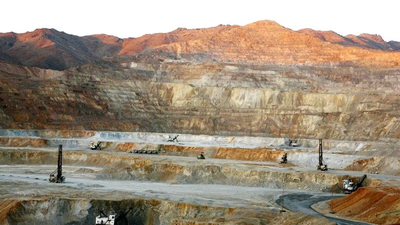
Metals have been integral to human civilization since the Stone Age, serving as tools for warfare and logistics. The history of metals includes significant milestones such as the use of copper around 8000 BCE, the development of bronze during the Bronze Age, and the transition to iron in the Iron Age. The Greeks and Romans advanced metallurgy through techniques like casting and forging. The medieval period saw the emergence of steel production, enhancing weaponry and tools. The Industrial Revolution revolutionized metal production with innovations like the Bessemer process, leading to mass production and the steel industry’s rise. In the 20th century, advancements in metallurgy included high-strength alloys and non-ferrous metals, which are now crucial in various industries including construction, transportation, and electronics. Metals are essential for sustainable energy sources, with copper, aluminum, and silver playing key roles in electrical infrastructure. Lightweight metals enhance fuel efficiency in transportation, while metals like steel are vital for construction.
Advanced manufacturing techniques, such as 3D printing, utilize metal powders for customized components. The electronics industry relies on metals for wiring and semiconductors, while healthcare applications benefit from metals like titanium and stainless steel. Recycling metals is increasingly important for sustainability, and innovations in nanotechnology are opening new avenues for metal applications.










